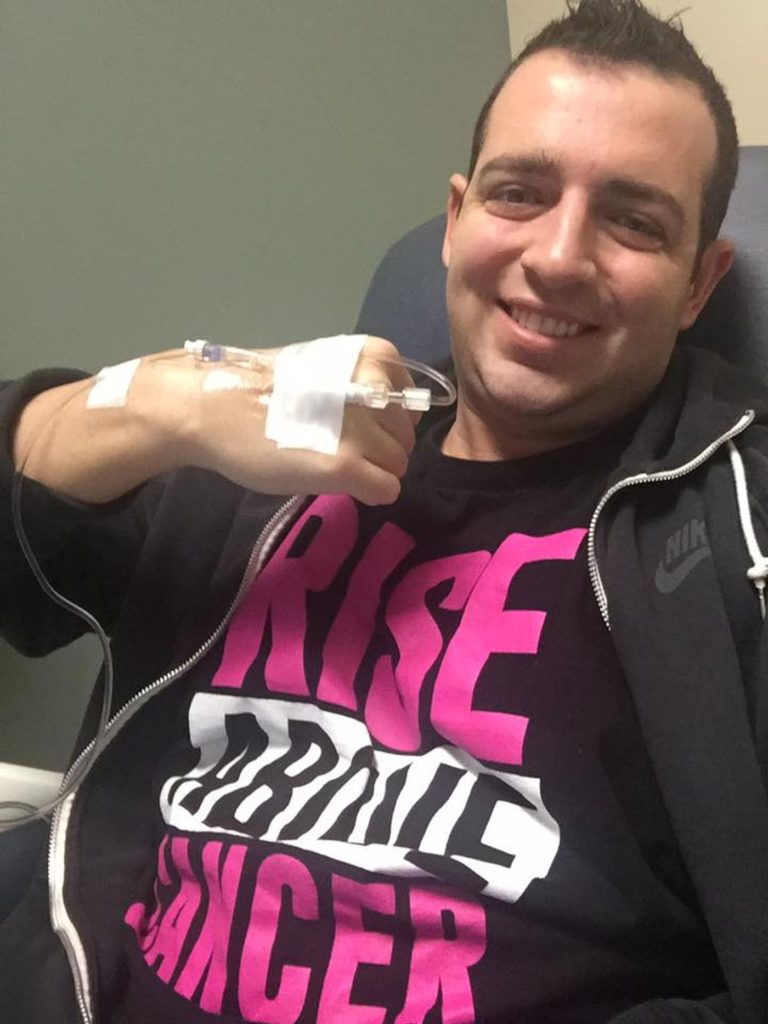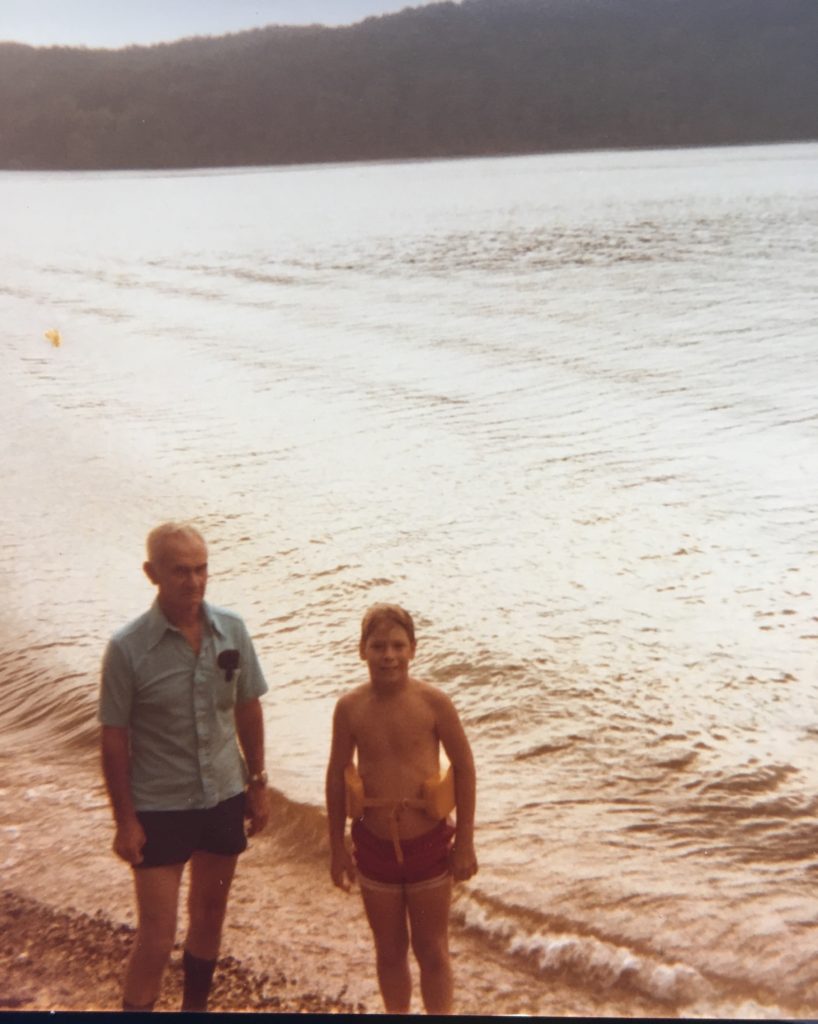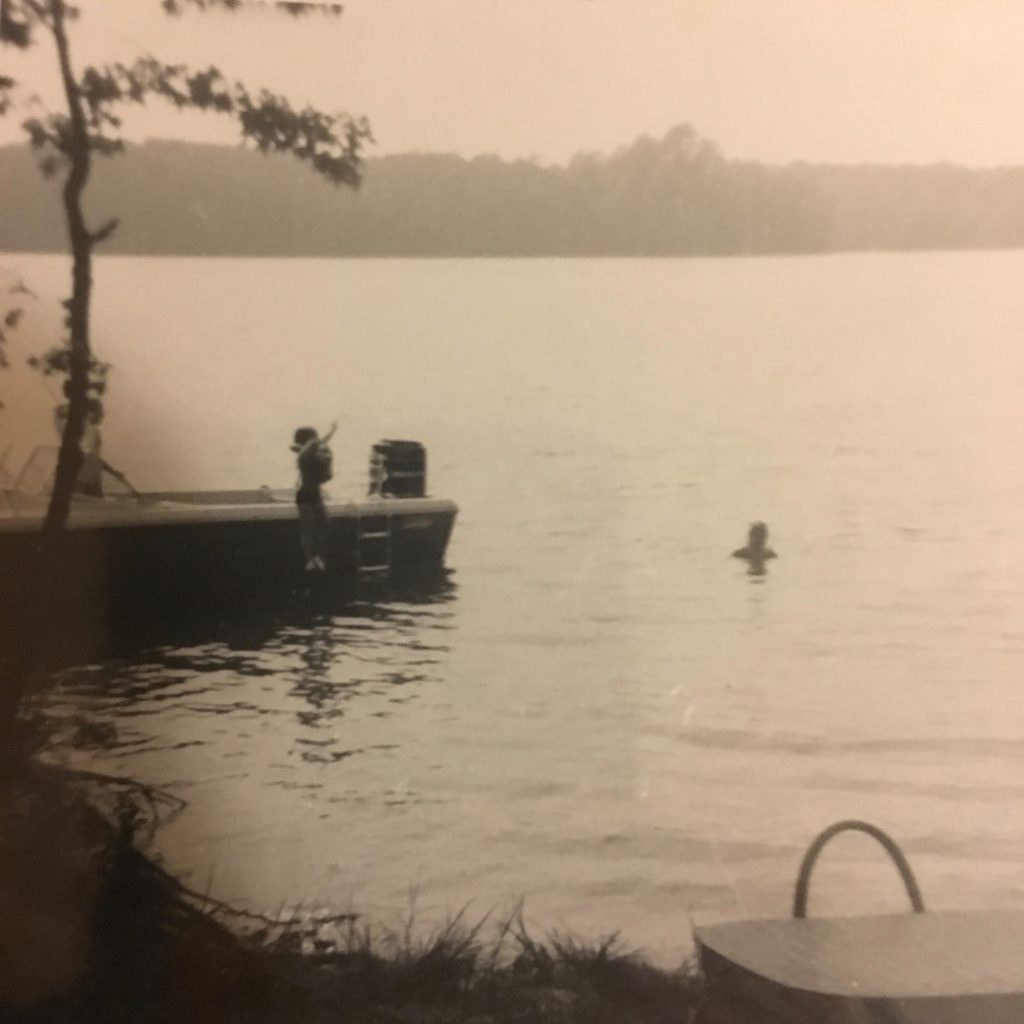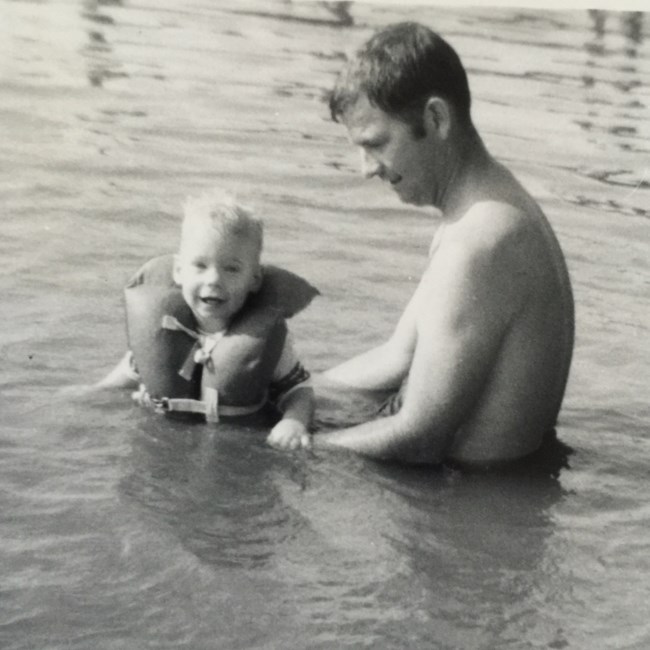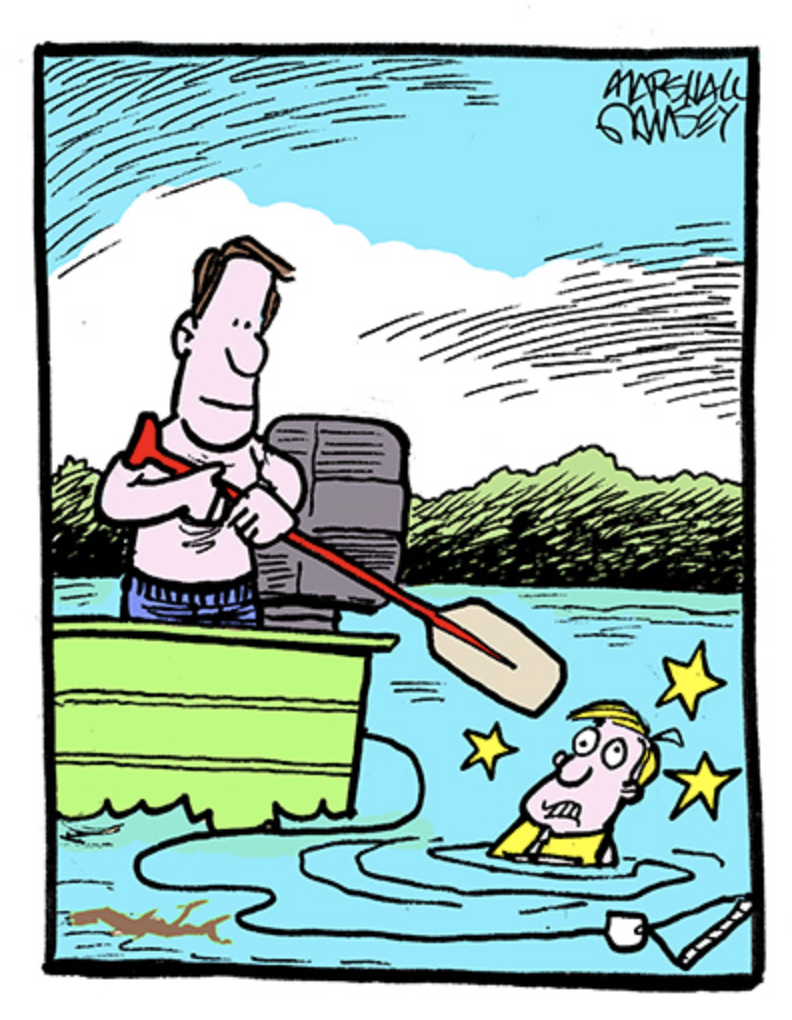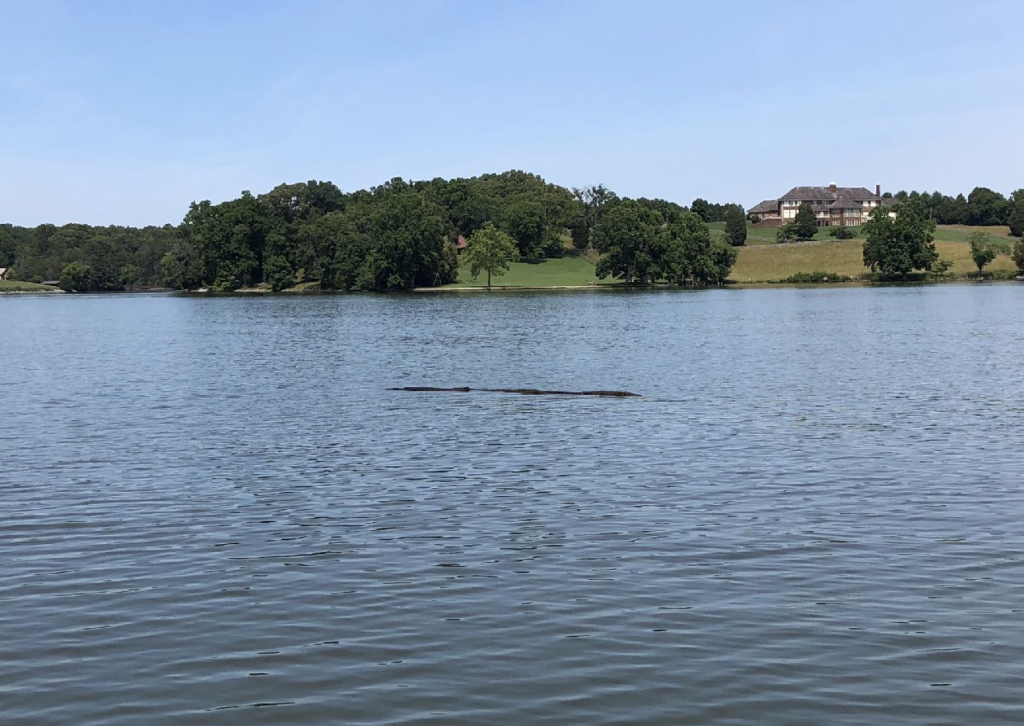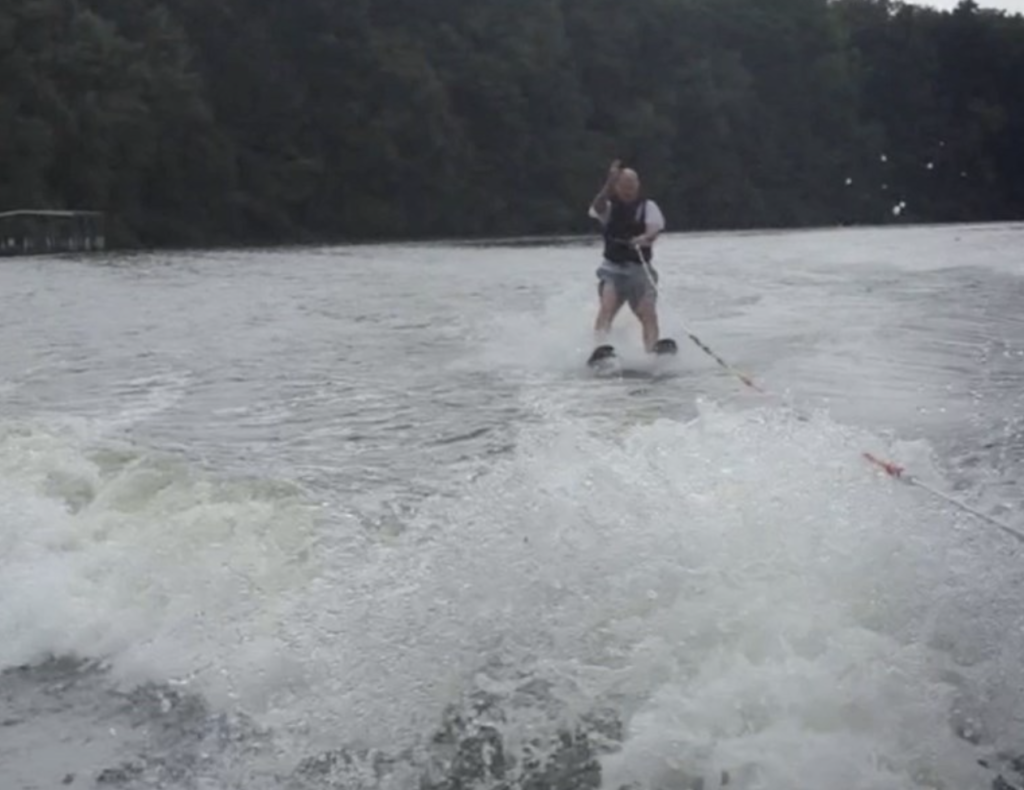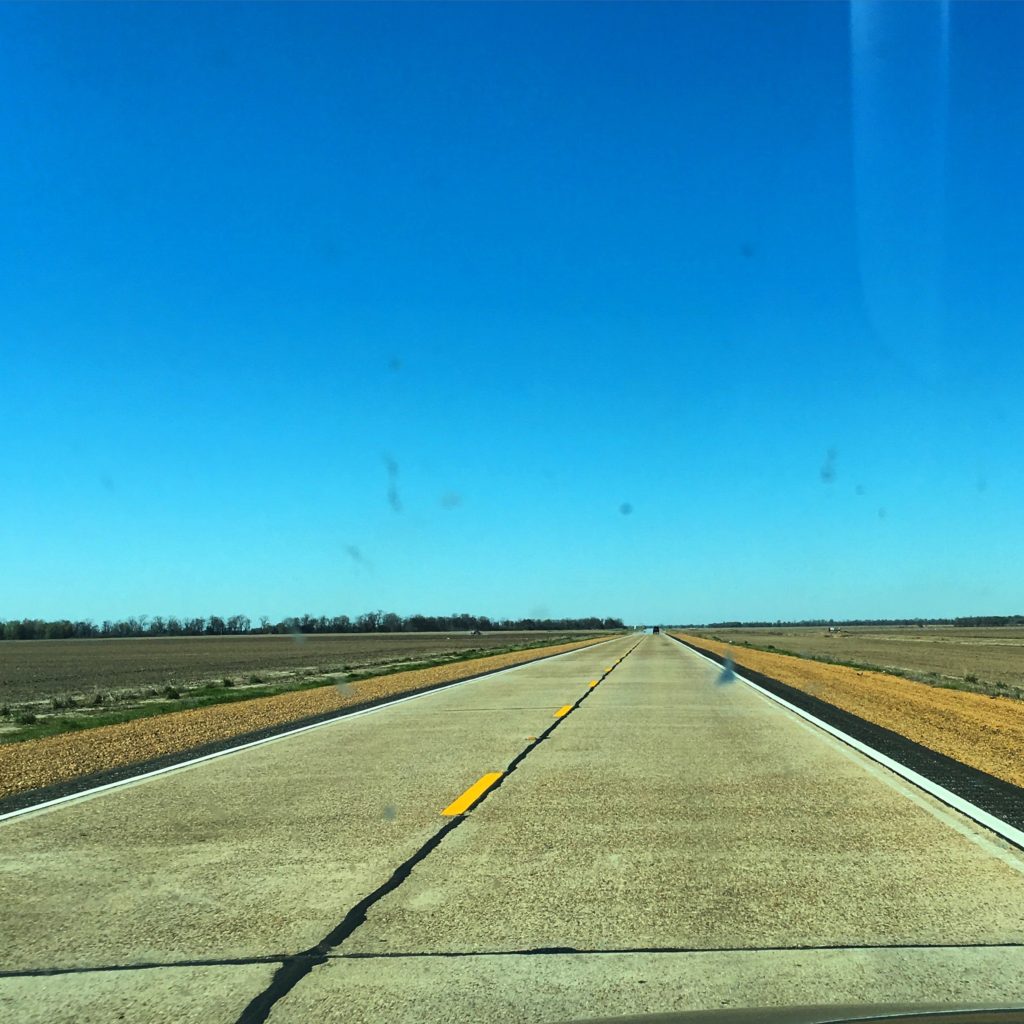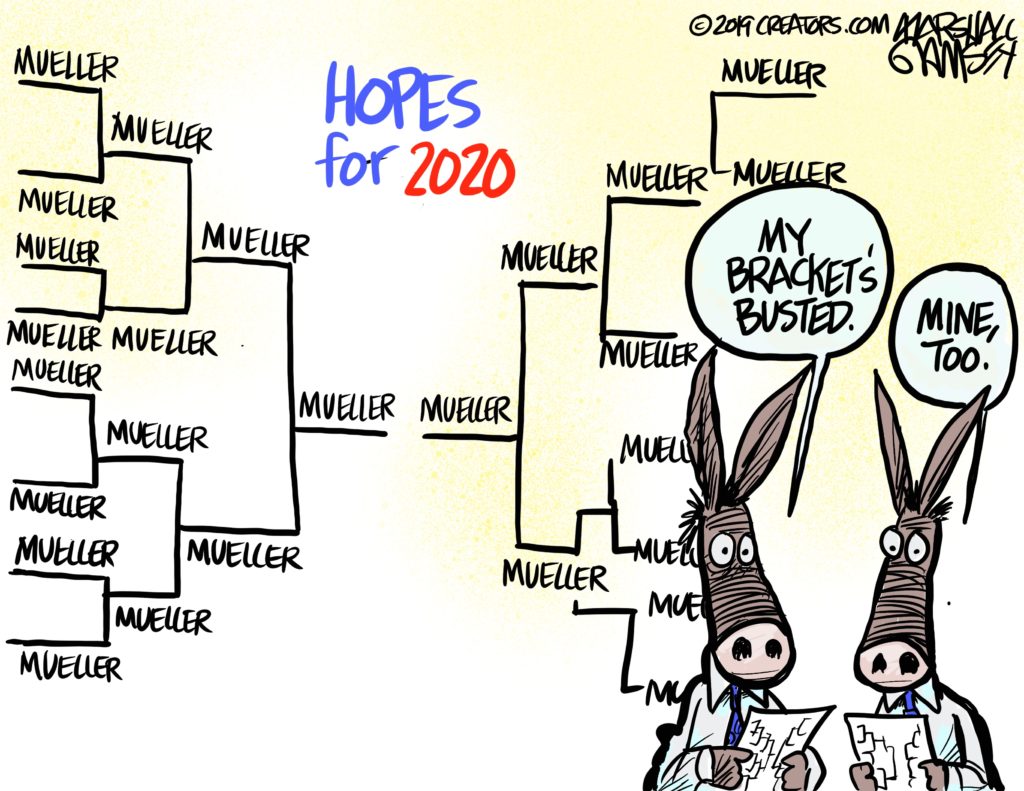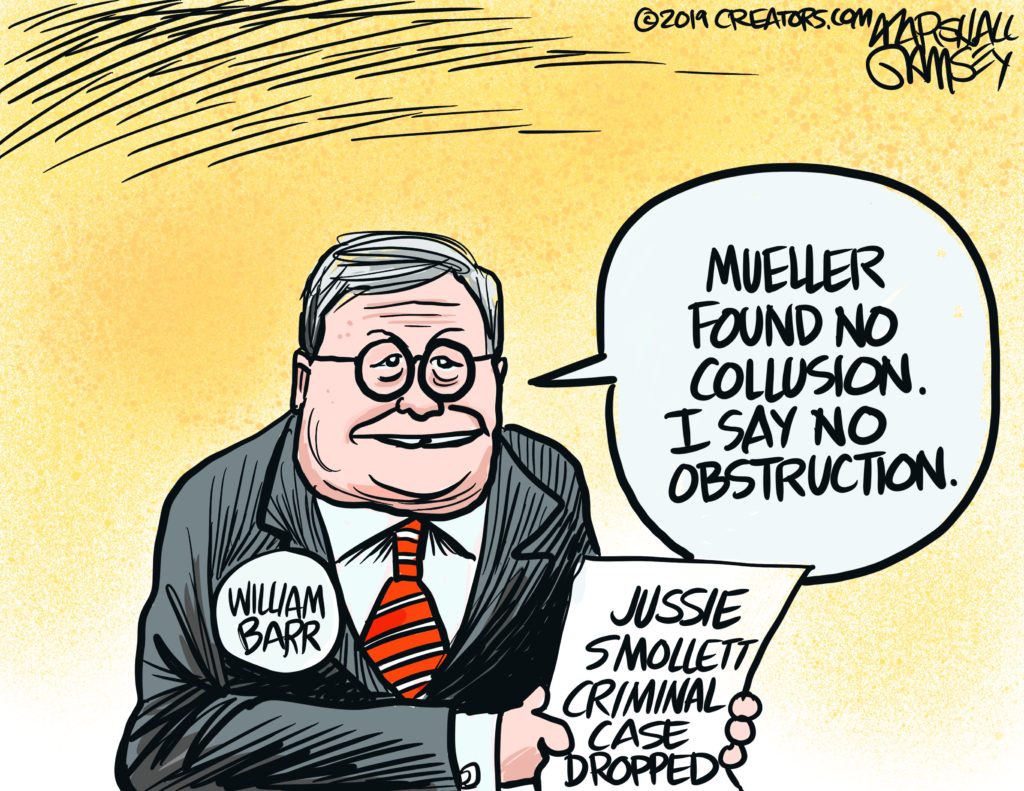The Reverend James O’Reilly stared at his blank laptop screen waiting for divine inspiration. Its white glow illuminated the frustrated look on his face. So far, nothing.
“Moses had it easy,” he thought, “he had a burning bush.”
His office was tomb quiet except for the ticking of his grandfather’s old clock. Franklin O’Reilly had served as chaplain on the U.S.S. Benjamin Franklin until a Kamikaze sent him to meet Jesus. Next to the clock was a baseball signed by Hank Aaron, a picture of him and Mother Theresa and a Statue of Liberty thermometer. All these were random things that defined Reverend James O’Reilly.
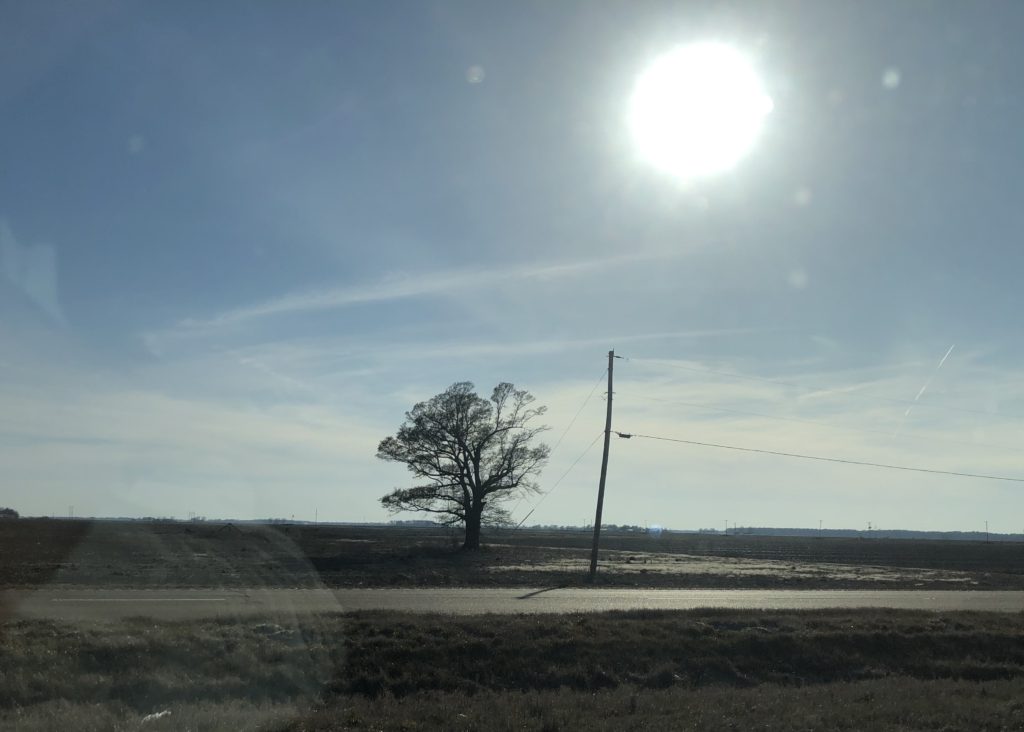
The baseball? He used to go with his dad to see Hank Aaron play. They had been in Atlanta-Fulton County Stadium when Hammerin’ Hank hit his record-breaking 715th homerun; it was simply the most wonderful day of his life. The next day was the absolute worst. His father dropped dead of a heart attack at the kitchen table during dinner. He struggled with his faith after his father’s death and for a while vowed to become an atheist. How could God take his dad away from him like that when he was just seven years old?!? But that pain had forged his spiritual self over time. It had allowed him to understand life’s fragility and urgency. The photo with Mother Theresa reminded O’Reilly of his daily mission to lift up his community through his works. And the Statue of Liberty was bought by his mother — a complicated woman who suffered from mental illness at the end of her life. She had turned inwards trying to ease the painful voice in her head. O’Reilly, scarred from growing up with her, knew that the only way to quiet that voice was to lift up others. That’s why he became a priest.
Tick tock. Tick Tock. Tick Tock. Still nothing.
Easter was his Super Bowl. It was like New Year’s Day for fitness centers — it’s when you saw people you wouldn’t see for the rest of the year. It was the one day he knew he could reach most of his small congregation. But what could he say? Sure, he’d talk about the glory and love of the risen Christ. But how could he make that relevant for his parishioners lives? He stared at the blank screen. Maybe it was time for him to say an emergency prayer. But he knew God wasn’t a genie who answered prayers like wishes. Every time he had prayed for something, God had given him the opportunity to earn it. He had prayed he’d be a successful and powerful bishop. He wanted to make a difference in people’s lives. He looked out at the window at the fields and realized God had placed him a million miles from that.
How could he make a difference in his parishioners’ lives?
St. Francis of Assisi Episcopal Church is a small white wooden church in the middle of a small town in the middle of a small part of the Mississippi Delta. Like the town around it, it was shriveled up like crops during a drought. St. Frances wasn’t Reverend O’Neil’s first choice of places to be. Or even his 254th. He has lucky to have a job at all. He was on the cusp of taking the reigns of a large cathedral in Atlanta, Georgia when his ambition outran his common sense. Adam and Eve had an apple; Franklin O’Neil had his own forbidden fruit. The bishop, a close personal friend, had salvaged his career by calling the bishop in Mississippi who happened to need a rector for St. Francis. Next thing he knew, he was a modern-day Icarus who crash landed smack in the middle of the Mississippi Delta.
He had been at St. Francis for five years now. He was a broken man serving a broken congregation. But he had developed a genuine love for the place. The first couple of years, he’d spend evening looking out over the fields at the setting sun as he wished to be somewhere else. But God had plans for him there. He was to grow where he was planted and for the time being, he was planted in the rich Delta soil.
He looked at the screen and typed a few words. A few more came and then a few more. Sure, it wasn’t the best sermon but it was the best one he could come up with. He closed his laptop and thought, “Thanks be to God.”
He walked from his office to the parsonage at the back of the property. In between, there were several old graves. The Flood of 1927 had destroyed the church and caused several of the caskets to float away. Life was a struggle in this part of Mississippi. If it wasn’t the floods, it was the poverty or even tornadoes. He smiled and thought, “ashes to ashes, dust to dust.” (His Good Friday sermon had been particularly good he thought.) You didn’t need many reminders of life’s frailty around here.
His parsonage was creaky, leaky and according to his teenage daughter, “freaky.” Since his wife left him (after the Atlanta disaster and the loss of their son), his daughter only came to visit a couple weeks in the summertime. So on nights like this, it was just him and his cat Moses. He had found Moses in a box down by the Sunflower River. Father O’Reily pulled a soft drink out of the fridge and read back over his sermon. Cheating death? Check. God’s Love? Check. Love thy neighbor? Check. Courage to love others as yourself? Check. Loving others as yourself always seemed hard to Father O’Reilly — it’s hard to love others if you didn’t particularly love yourself. That’s what caused the Atlanta meltdown after all. He took a sip of the soda and smiled. Five years ago, this would have had a good dose of Bourbon mixed into it. He looked up at the quote from St. Francis of Assisi he had framed on his wall:
“Start by doing what’s necessary; then do what’s possible; and suddenly you are doing the impossible.”
Easter morning was a glorious morning. The sun rose over the freshly planted fields as fog burned off over the swamps and the creeks. The parishioners, dressed in their Sunday finest, filled the pews. Small children joined their parents and grandparents. Kids came home from Nashville, Atlanta and Dallas. Flowers joined the gold cross on the altar. Alleluia was proclaimed. Then it was time for the homily. It was time to blind the crowd with his brilliance.
“Death lost today. Hate took a backseat. Fear withered. Love won the day.”
Before he could say another word the doors burst open. There, standing in back of the nave was Jimmy Breck. Jimmy had served in Iraq five tours and had come home a troubled and angry man. For five years, he had bounced from job to job as he had struggled with his PTSD. Now, he was angry and waving a .38 pistol at the congregation.
“DON’T MOVE YOU SONS OF A BITCHES. YOU WANT TO SEE JESUS? TODAY WILL BE YOUR CHANCE! I AM TIRED OF BEING IGNORED BY THIS TOWN!”
The Reverend O’Reilly looked at Jimmy and calmly put down his sermon. He took a deep breath (which could be his last) and said calmly, “Good morning Jimmy. Welcome. You are loved by all in this room. Join us.”
Jimmy waved his pistol around the room again and then trained it at O’Reilly. “BULLSH*T DON’T SAY ANOTHER WORD OR YOUR BRAINS WILL BE ALL OVER THE WALL!”
O’Reilly felt something warm move through him as he looked around at the terrified faces of the congregation. Low sobs filled the rooms as people began to cry as quietly as they could. He looked out at Jimmy and thought of his own son who had died in Afghanistan five years ago. Fear should have gripped him, but he felt love for the broken man in front of him who was waving the pistol.
“God loves you Jimmy. I love you.”
Jimmy waved the pistol again and the fired it at the statue of Jesus. Jesus’ head exploded into shards of porcelain.
“Jimmy, please don’t do that again. And please take a seat. You are welcome to take communion with us.” There was a calmness in his voice that was other-worldly. Jimmy felt the power of the Holy Spirit flowing through him as he began to walk out from behind the pulpit.
“DON’T MOVE MOTHERF*CKER!!” Jimmy screamed. “YOU ARE ALL ABOUT TO DIE!”
O’Reilly walked calmly and slowly toward Jimmy. Jimmy shook with disbelief as the priest approached him. There was no sign of fear in this man. Who was he?
“Jimmy, God loves you and so do I.”
Jimmy lifted the pistol and pointed it right at O’Reilly. But the priest still continued toward him. Soon he felt the cold metal of the barrel against his forehead.
“Give me the gun Jimmy. You are welcome to stay for communion. You are part of our family.”
Jimmy’s finger began to pull back on the trigger but something tugged it back. Mystified, he lowered the gun and just stood there. O’Reilly looked at him and said, “Give me the gun Jimmy. I’ll keep it for you until the end of the service.”
Jimmy, feeling a peace he had not felt since before the war, he handed the priest the gun. His anger faded and he stared at the crazy priest and began to sob.
“Who are you?”
“Someone who loves you Jimmy.” And then O’Reilly held the man in his arms. “Everyone in this room loves you.”
Sirens filled the air as the State Patrol burst through the back doors. The troopers had expected to see a blood-filled crime scene but instead saw a broken priest holding a broken man.
“Jimmy Breck, you are under arrest.”
Father O’Reilly looked at the officer and said, “Not yet. I made a promise to this man and I intend to keep it.”
And he grabbed a wafer and poured a cup of wine in the chalice.
“Body of Christ, the bread of heaven/The Blood of Christ, the cup of salvation”
The Reverend James O’Reilly never did get to finish his sermon that Easter. If he had, he’d have talked about salvation and the next life. But even though his words didn’t express God’s love, his actions did. He saved dozens of lives, including Jimmy Breck’s, that day. Breck served his time, got the help that he needed and began rebuilding his life. He and James are still close. James O’Reilly became a national celebrity for his actions and turned down several job offers and a trip to the Today Show. He still preaches to a packed church every Sunday.
God sent him to St. Francis for a reason. And on that Easter Sunday, the reason became very clear. He looked at the quote from St. Francis of Assisi and smiled:
“Start by doing what’s necessary; then do what’s possible; and suddenly you are doing the impossible.”

